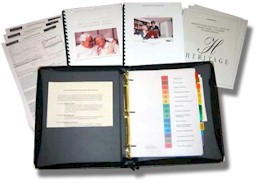New 2013 Estate Tax Changes
Most estates don't owe federal estate or gift tax, because you can give away or leave substantial amounts of property tax-free.
The federal estate and gift taxes are really one tax, called the unified gift and estate tax. Under current law, you can leave or give away up to $5.25 million, total, before you need to pay tax. Tax liability isn't assessed until death, unless you make $5.25 million in taxable gifts (very unusual) during your lifetime.
The personal estate tax exemption. The personal exemption allows a set dollar amount of property to pass tax free, no matter who inherits it. For deaths in 2011, the individual exemption was $5 million; for deaths in 2012, $5.12 million; and in 2013, $5.25 million. The amount will be indexed for inflation, so it will probably increase in future years. If your estate is worth less than the exemption amount--as are the estates of more than 99% of the population--it won't owe federal estate tax when you die. If you have made taxable gifts during your life, the amount of yourpersonal exemption will be reduced by the amount of those taxable gifts.
The marital deduction. All property left to a surviving spouse passes free of estate tax. (I.R.C. § 2056(a).) The marital deduction is not allowed for property left to noncitizen spouses. But the personal estate tax exemption can be used for property left to noncitizen spouses.
The charitable deduction. All property left to a tax-exempt charity is also free of estate tax. (I.R.C. § 2055(a).)
Special rules for married couples. A surviving spouse gets a big tax break. If the deceased spouse didn't use up his or her individual tax exemption, the survivor can use what's left. That gives the couple a total $10.5 million (under current law) exemption, split between them in any way that provides the greatest tax benefit. For example, say a man dies and leaves $4 million to his widow; no estate tax is owed because property left to a spouse is tax-free. The widow then dies, leaving $7 million (her own $3 million plus the $4 million she inherited from her husband) to their children. Her estate won't owe any estate tax, even though the estate is over the exemption amount, because the estate can use some of the husband's unused exemption.
State estate taxes. Even if your estate isn't big enough to owe federal estate tax, the state may still take a bite. Many states collect either their own estate or inheritance taxes. (See Estate and Gift Tax FAQ.) If you live in one of those states, there's not much you can do to avoid paying those taxes, save moving to another state.
 Post a Comment → Posted on
Post a Comment → Posted on  Sunday, January 27, 2013 at 12:00PM
Sunday, January 27, 2013 at 12:00PM 

Reader Comments